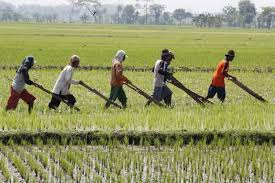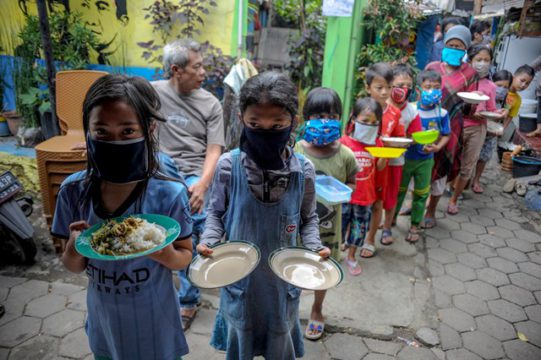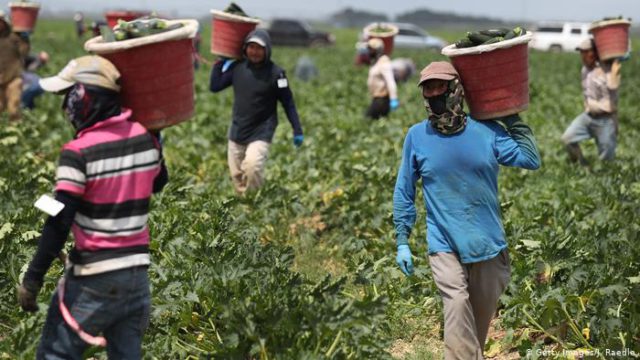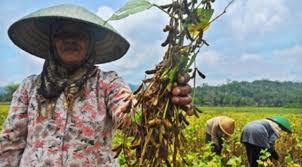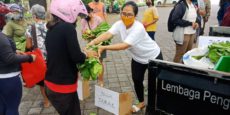When will the current economic crisis, causing untold pain and suffering to the people of Bali, come to an end?
The answer to this question is as straight-forward as it is complicated.

Bali’s economy is inextricably linked to tourism. As a result, Bali’s economy will only revive when an effective COVID-19 vaccine is administered to most of the planet’s populace, and a sufficient number of people have re-established their financial capability to spend money on international travel again. Finally, and most importantly, the crisis ends when the public begins to feels it safe to congregate on flights, at hotels, and in restaurants, theaters, and other public places.
When will this happen is anyone’s guess. Even with recent rapid-fire breakthroughs on highly-effective vaccines against COVID-19, the earliest a vaccine might be distributed globally, followed by a resumption of international commerce, would be, by current estimates, late 2021 or early 2022.
The economic devastation visited on the people of Bali by the Pandemic is unprecedented. Those hotels that have managed to remain open, operate with less-than-break-even occupancy levels. Thousands of hotel staff have been fired or sent home without pay on indeterminate furlough. Many restaurants, bars, nightspots, and shops are closed – some of which are unlikely to ever open again. Tourism attractions are only partially open with former gala stage extravaganzas now home to empty stages facing empty audience seats.
Loss of employment and loss of income has devastated the purchasing power of people in Bali. Delicious Kintamani oranges that sold in pre-COVID times for Rp. 20,000 – Rp. 30,000 per kilo now go unsold by curbside vendors offering the fruit at Rp. 5,000 (US$0.35) per kilogram. Many supermarkets have poorly stocked shelves punctuated by hauntingly empty aisles bereft of customers.
The situation in Bali grows increasingly dire by the day. Both businesses and households are existing on a hand-to-mouth, day-by-day basis. Purchasing power is at a nadir. Many find themselves teetering on the edge of hunger.
Only a single meal away from abject desperation, the Island teeters in fear of widespread societal disintegration still held still in check but lurking menacingly in the background.
Bali must take every step possible to make sure the Island remains free of hunger.
What Must be Done?
When Bali’s tourism industry’s current crisis will end, and the people of Bali will rebuild their economy is not likely to happen soon. The Island can only prepare for tourism’s return, and urgently take care of its people’s welfare while waiting for this to happen.
In our view, first and foremost, Bali must take every step possible to make sure the Island remains free of hunger.
Bali is an agricultural society where people who once worked in hotels and restaurants have now returned to farming to survive. Unfortunately, the lack of purchasing power caused by the economic downturn means traditional markets and food shops have gone deadly quiet and the farming products made by these “new age” agriculturalists go unsold. Roadside stands selling fruits, vegetables, and poultry at prices that are a mere fraction of their pre-pandemic levels have few customers because of the lack of money in the public’s pockets.
Until the current crisis ends, the Provincial of Bali should create a system of market and price supports that should include:
- Encourage Bali’s agricultural sector to cultivate all available land in fruit and vegetable produce.
- Notify all farmers that the Government will purchase food products they grow that cannot be sold through the established channels. The Government must purchase at guaranteed price levels that are transparent and provide a return on money and time invested for 100% of any oversupply in fruit and produce.
- Groups of sincere and public-spirited volunteers from religious and academic circles, supported by the Indonesian Armed Forces if required, should distribute government-purchased agricultural products at the lower-subsidized prices to traditional markets across the Island. The subsidized produce will bolster sales and help sustain traditional markets under threat and suffering badly in the current crisis.
- The Provincial Government of Bali should also distribute to the public without charge any remaining agricultural products that cannot be sold at subsidized prices in traditional markets.
The benefits of such a program are readily apparent. All people working the land in Bali will be guaranteed a profitable outlet for their labors. Employment in the agricultural sector will be stimulated, providing job opportunities and income for people once employed in tourism. And, nearly 100% of Bali agricultural products will be used for feeding the public.
Most importantly, Bali will have found a way to ensure that no one goes to bed at night on an empty stomach, praying for the current global economic crisis to end.

